The Transboundary Impact Assessment Project for Sanitation Infrastructure in Ambos Nogales
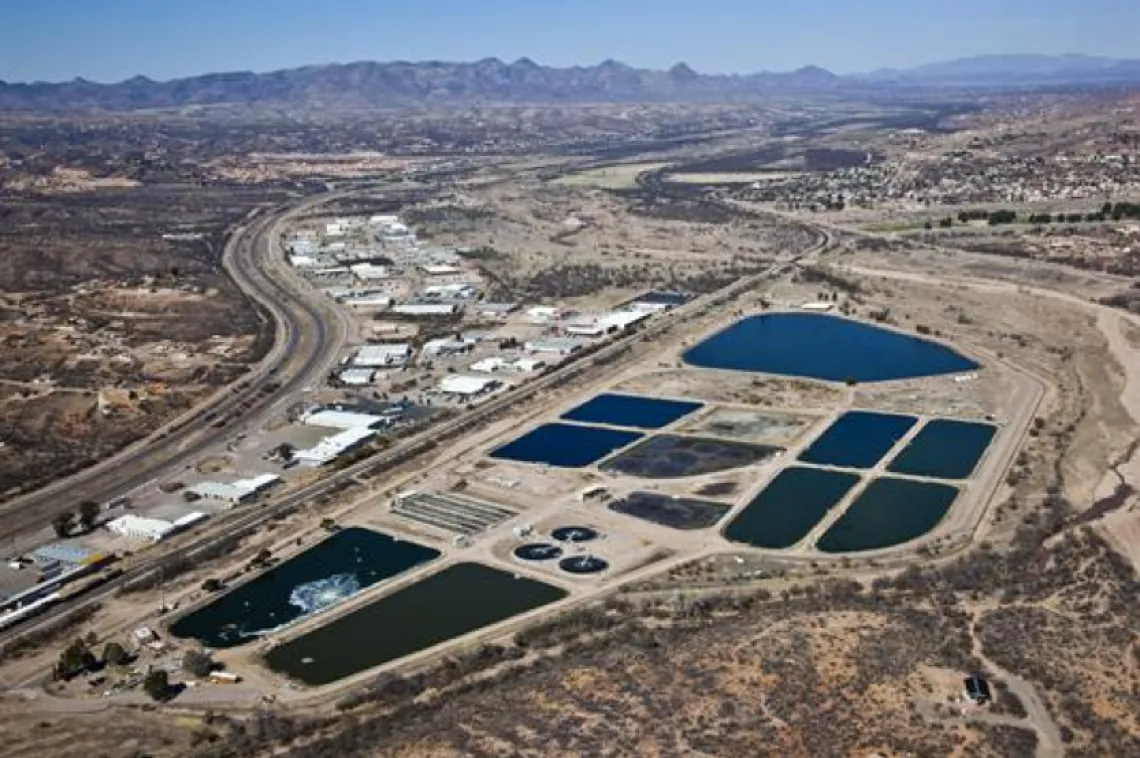
The Transboundary Impact Assessment Project for Sanitation Infrastructure in Ambos Nogales (Nogales,Arizona and Nogales, Sonora), funded by the North American Development Bank, is being carried out by a binational research team composed of seven researchers and two academic technicians from three high-level academic institutions (El Colegio de la Frontera Norte, El Colegio de Chihuahua and the University of Arizona), located in the border region of Mexico and the United States.
The project is assessing to what extent the modernized infrastructure in each city related to the international wastewater treatment plant met the originally proposed objectives in terms of the physical indicators established in previous interventions. The project also examines the impact this infrastructure has had on inhabitants’ perceptions regarding quality of life, health and the economy in these two communities and its contribution to ecosystem services. To carry out the project, the work team has conducted research with staff from different levels and agencies of government, as well as with the border communities of Nogales, Arizona and Nogales, Sonora.
Researchers
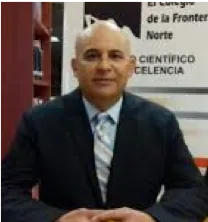
Dr. Rigoberto García Ochoa
Research Professor at El Colegio de la Frontera Norte.
Ph.D. in Urban and Environmental Studies by El Colegio de México.
Doctor García obtained the first place of the Gustavo Cabrera Acevedo Award 2011 as the best research work in urban studies. His academic work has been characterized by theoretically discussing the relative or absolute nature of human needs, which has led him to construct objective (quantitative) and subjective (qualitative) indicators to measure the deprivation of necessary necessities for basic human needs.
Contact information:
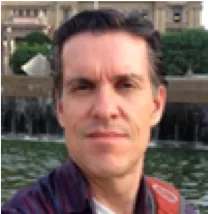
Dr. Christopher A. Scott
Founding co-director of the AQUASEC Center of Excellence for water Security, Director of the Consortium for Arizona-Mexico Arid Environments (CAZMEX) and Director of the Udall Center for Studies in Public Policy.
He is also a research professor of Water Resources Policy, with joint appointments as Professor in the School of Geography & Development and Joint Professor of Hydrology & Atmospheric Sciences in the College of Science (both at the University of Arizona). Professor Scott is an interdisciplinary scholar with some 100 peer-reviewed journal articles, 10 edited books and 120 book chapters and other publications on water, energy, and food policy. His work focuses on the policy dimensions of global change (climate change and urban growth) with particular emphasis on water and energy security, climate adaptation, urban wastewater and water reuse, agricultural-urban water transfers, and transboundary water resources.
Contact information:
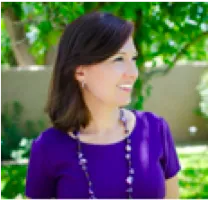
Dr. Adriana Zuñiga-Teran
Staff Scientist, Udall Center for Studies in Public Policy.
Senior Lecturer for the Sustainable Built Environments Degree Program at the College of Architecture, Planning, and Landscape Architecture at the University of Arizona.
She has a background in architecture and her area of expertise is neighborhood design. Her research interests include sustainable urban development, green infrastructure, climate change adaptation and resilience, and water security in arid lands. She is currently working as a Staff Scientist at the Udall Center for Studies in Public Policy at the University of Arizona. Adriana is originally from Monterrey, Mexico. She did her undergraduate studies at the Monterrey Institute of Technology and Higher Education (ITESM) in Monterrey. She worked as an architectural designer in Mexico for several years. She holds a Master of Architecture degree with a concentration in Design and Energy Conservation and a Doctor of Philosophy degree in Arid Lands Resource Sciences with a minor in Global Change. She completed both her Master's and Ph.D. at the University of Arizona.
Contact information:
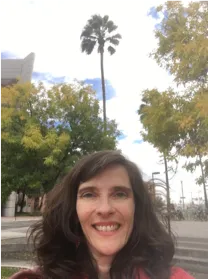
Dr. Stephanie Buechler
Assistant research scientist in environmental policy and an assistant research professor at the Udall Center; and an assistant research professor in the School of Geography and Development at the University of Arizona.
Her research focuses on gendered natural resource use under changing environmental conditions in rural, peri-urban and urban settings and gender, agriculture and renewable energy projects. She has conducted research in Guanajuato, Zacatecas and Sonora, Mexico; Tucson, Arizona; Hyderabad and Uttarakhand, India; and Tegucigalpa, Honduras. She is also affiliated with the Institute for the Environment; Gender and Women's Studies; Latin American Studies. Recently, she conducted research on women in mining communities in Sonora, Mexico, women's experiences with renewable energy in their homes and with large-scale projects in urban and rural Arizona and, with Mexican colleagues, in Zacatecas, Mexico; small farmers' experiences with hydroelectric power projects in Uttarakhand, India; social, environmental and economic sustainability of community gardens for low-income populations in Tucson, Arizona; and women's strategies in the context of climate and water resource challenges in kitchen gardens in San Ignacio, Sonora, Mexico.
Contact information:
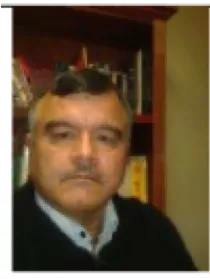
Dr. Luis E. Cervera Gómez
Professor and Researcher working by El Colegio de de Chihuahua in Ciudad Juarez, Chihuahua.
PhD in Research from the Colegio de Chihuahua, and Candidate for a PhD in Space Analysis (GIS & Remote Sensing) from the University of Arizona, in the department of Arid Lands and Resource Sciences.
He is a member of the National System of Researchers and has PRODEP Desirable Profile. He has 23 years of experience as a research professor and expert in Geographic Information Systems and satellite images, with extensive experience in the generation of geo-referenced databases and in the application of spatial and geostatistical analysis techniques for the study of various social phenomena. and environmental Coordinated the State Program of Territorial Ordering of Chihuahua with financing from SEDATU-Mexico. He has developed more than 20 projects for BECC, an institution with which he shares the development of two algorithms: a) paving diagnostics; and b) vehicle load counting with satellite images of high spatial resolution. He has worked in several research projects with research teams from the University of Arizona, Arizona State University, University of Utah, CEC-Canada, among others. Most of his research is related to spatial analysis using geostatics methods to understand how a specific phenomenon varies across the space and time at different scales: local, urban, regional and national.
Contact information:
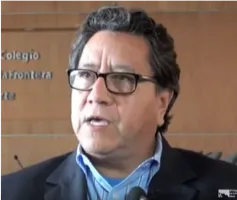
Dr. Sergio Peña Medina
Department of Urban Studies and the Environment.
Belongs to the national system of researchers (SNI) level 2.
Ph.D. in urban planning by The Florida State University (FSU).
He is a professor-researcher assigned to the department of urban studies and environment (DEUMA) in the northwest regional direction in Ciudad Juárez. He collaborated very actively in the creation of the curricular program of the Master in Public Action and Social Development (MAPDS), and was the first coordinator of the MAPDS that is taught in the Northwest regional headquarters in Ciudad Juárez from COLEF.
He has worked on research projects such as: Follow up to collection and analysis of water utilities performance benchmarks for Mexico northern border area, 2010-2012; The geography of urban poverty in Ciudad Juárez, Chihuahua: dynamics and evolution 2000-2010; Cooperation and cross-border governance: guidelines for public policies.
Research topics: Analysis of cross-border relations and cooperation with emphasis on aspects of urban and regional planning, as well as issues related to massive cadastral valuation. He has collaborated in projects to evaluate the impact of projects related to the World Bank, the Pan American Health Organization, among others.
Contact information:

M. Karina G. Martínez
Master of Development Practice at the School of Geography and Development, in the University of Arizona.
Graduate Research Assistant at the Udall Center for Public Policy Studies and a CONACYT-SENER fellow.
Prior to joining the MDP program at the University of Arizona, Karina completed her undergraduate studies in Environmental and Industrial Engineering at the Sonora State University. She is interested in evaluating environmental problems or risks, as well as their social and cultural impacts. Her current research project focuses on identifying energy requirements and obstacles to meet the needs of vulnerable social groups located in Hermosillo, Sonora. She has also studied the relationship between gender and renewable energies, to identify how renewable energy projects can contribute to meet women's energy needs, as well as the role of renewable energies in the nexus between water, energy and food.
Contact information:
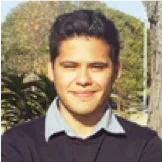
Isaac Palomo
Graduate Student, Masters in Landscape Architecture, College of Architecture, Planning and Landscape Architecture (CAPLA), University of Arizona.
He is currently a Graduate Research Assistant at the Udall Center for Studies in Public Policy. His research interests include water security in the built environment, green infrastructure in the arid lands, urban resilience and climate change adaptation, and the implications of environmental design on human health.Prior to joining the MLA program at the University of Arizona, Isaac did his undergraduate studies in the Bachelor of Science in Sustainable Built Environments degree with an emphasis in sustainable landscapes. Inspired to learn ecosystem services and how to manage and design landscapes in order to ensure water security, animal and plant diversity, and human wellness. Before joining the Udall Center, Isaac previously had interned for the Bureau of Applied Research in Anthropology to research permaculture and food insecurities. Currently, Isaac is also working with the Climate Assessment for the Southwest (CLIMAS) at the University of Arizona. CLIMAS is a part of the National Oceanic and Atmospheric Sciences and Assessments Program that works with partners across the Southwest to develop sustainable solutions to regional climate challenges. At CLIMAS, his primary tasks includes gathering background information on climate and environmental research for use by CLIMAS, researching current events and helpful resource tools to be included in the Rio Grande-Bravo Outlook and translating monthly outlook publications.
Contact information:

